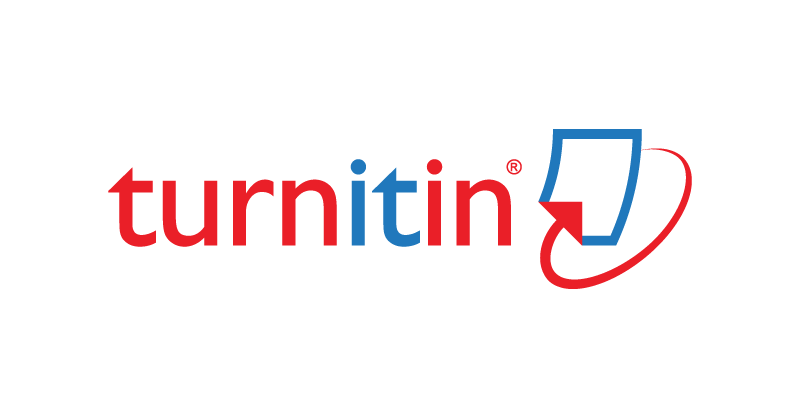Pengaruh Leverage, Kualitas Audit, dan Intensitas Modal Terhadap Tax avoidance
Abstract
This study aims to examine the effect of leverage, audit quality, and capital intensity on tax avoidance. The method used in this research is Cash Effective Taz Rate (CETR). This method is used to measure tax avoidance. Tax avoidance is a practice carried out by companies using various methods in order to avoid tax obligations. The population used in this study are companies in the Mining Sector for the 2017-2019 period listed on the Indonesia Stock Exchange. Purposive sampling was used in sampling. The number of companies that meet the criteria is 16 companies. This study uses multiple linear regression analysis and T statistical test to answer the hypothesis using SPSS version 25. The results showed that capital intensity has an impact on tax avoidance. Leverage has no impact on the tax avoidance variable and audit quality has no impact on the tax avoidance variable. When viewed from the coefficient of determination indicates that the leverage, audit quality and capital intensity variables explain only about 26.1% of the variation in the tax avoidance variable, while the remaining 73.9% can be explained by other variables.
Full Text:
PDFReferences
Akhtar, S., Akhtar, F., John, K., & Wong, S. W. (2019). Multinationals’ tax evasion: A financial and governance perspective. Journal of Corporate Finance, 57, 35–62. https://doi.org/10.1016/j.jcorpfin.2017.11.009
Alhababsah, S., & Yekini, S. (2021). Audit committee and audit quality: An empirical analysis considering industry expertise, legal expertise and gender diversity. Journal of International Accounting, Auditing and Taxation, 42, 100377. https://doi.org/10.1016/j.intaccaudtax.2021.100377
Anindyka, D., Pratomo, D., & Kurnia. (2018). Pengaruh Leverage (Dar), Capital Intensity Dan Inventory Intensity Terhadap Tax Avoidance (Studi Pada Perusahaan Makanan dan Minuandi Bursa Efek Indonesia (BEI) Tahun 2011-2015). E-Proceeding of Management, 5 No.1(1), 713–719.
Dewinta, I., & Setiawan, P. (2016). Pengaruh Ukuran Perusahaan, Umur Perusahaan, Profitabilitas, Leverage, Dan Pertumbuhan Penjualan Terhadap Tax Avoidance. E-Jurnal Akuntansi Universitas Udayana, 14(3), 1584–1615.
Dwiyanti, I. A. I., & Jati, I. K. (2019). Pengaruh Profitabilitas, Capital Intensity, dan Inventory Intensity pada Penghindaran Pajak. E-Jurnal Akuntansi, 27, 2293. https://doi.org/10.24843/eja.2019.v27.i03.p24
Fauzan, Ayu Wardan, D., & Nissa Nurharjanti, N. (2019). The Effect of Audit Committee, Leverage, Return on Assets, Company Size, and Sales Growth on Tax Avoidance. JURNAL Riset Akuntansi Dan Keuangan Indonesia, 4(3). http://journals.ums.ac.id/index.php/reaksi/index
Hapsari Ardianti, P. N. (2019). Profitabilitas, Leverage, dan Komite Audit Pada Tax Avoidance. E-Jurnal Akuntansi, 26(2019), 2020. https://doi.org/10.24843/eja.2019.v26.i03.p13
Jacob, F. O. F. (2014). An Empirical Study of Tax Evasion and Tax Avoidance : A Critical Issue in Nigeria Economic Development. Journal of Economics and Sustainable Development, 5(18), 22–27.
Jansen, M. C., & Meckling, W. H. (1976). Theory of The Firm: Managerial Behaviour, Agency Cost and Ownership Structure. Journal of Financial Economics, 3, 305– 360. Journal of Financial Economics 3, 3, 305–360. https://doi.org/10.1177/0018726718812602
Jusman, J., & Nosita, F. (2020). Pengaruh Corporate Governance, Capital Intensity dan Profitabilitas Terhadap Tax Avoidance pada Sektor Pertambangan. Jurnal Ilmiah Universitas Batanghari Jambi, 20(2), 697. https://doi.org/10.33087/jiubj.v20i2.997
Khairunisa, K., Hapsari, D. W., & Aminah, W. (2017). Kualitas Audit, Corporate Social Responsibility, Dan Ukuran Perusahaan Terhadap Tax Avoidance. Jurnal Riset Akuntansi Kontemporer, 9(1), 39–46.
Monika, C. M., & Noviari, N. (2021). The Effects of Financial Distress, Capital Intensity, and Audit Quality on Tax Avoidance. American Journal of Humanities and Social Sciences Research, 5, 282–287. www.ajhssr.com
Nugraha, M. I., & Mulyani, S. D. (2019). Peran Leverage Sebagai Pemediasi Pengaruh Karakter Eksekutif, Kompensasi Eksekutif, Capital Intensity, Dan Sales Growth Terhadap Tax Avoidance. Jurnal Akuntansi Trisakti, 6(2), 301–324. https://doi.org/10.25105/jat.v6i2.5575
Owhoso, V. E., Messier, W. F., & Lynch, J. G. (2002). Error detection by industry-specialized teams during sequential audit review. Journal of Accounting Research, 40(3), 883–900. https://doi.org/10.1111/1475-679X.00075
Pangestu & Pratomo. (2020). Capital Intensity Terhadap Tax Avoidance Dengan Profitabilitas, Size Dan Leverage Sebagai Variabel Kontrol. Jurnal Akuntansi Dan Ekonomi, Vol. 5, 26–34. https://doi.org/10.29407/jae.v5i3.14182
Pohan, C. A. (2018). Pedoman Lengkap Pajak Internasional (1st ed.). PT Gramedia Pustaka Utama.
Prastiwi, D., & Ratnasari, R. (2019). The Influence of Thin Capitalization and The Executives’ Characteristics Toward Tax Avoidance by Manufacturers Registered on ISE in 2011-2015. AKRUAL: Jurnal Akuntansi, 10(2), 119. https://doi.org/10.26740/jaj.v10n2.p119-134
Puspita, D., & Febrianti, M. (2018). Faktor-faktor yang memengaruhi penghindaran pajak pada perusahaan manufaktur di bursa efek Indonesia. Jurnal Bisnis Dan Akuntansi, 19(1), 38–46. https://doi.org/10.34208/jba.v19i1.63
Shin, H. J., & Woo, Y. S. (2017). The effect of tax avoidance on cost of debt capital: Evidence from Korea. South African Journal of Business Management, 48(4), 83–89. https://doi.org/10.4102/sajbm.v48i4.45
Sinaga, C. H., & Suardikha, I. M. S. (2019). Pengaruh Leverage dan Capital Intensity pada Tax Avoidance dengan Proporsi Komisaris Independen sebagai Variabel Pemoderasi. E-Jurnal Akuntansi, 27, 1. https://doi.org/10.24843/eja.2019.v27.i01.p01
Suprapti, E. (2017). Pengaruh Tekanan Keuangan Terhadap Penghindaran Pajak. Jurnal Reviu Akuntansi Dan Keuangan, 7(2), 1013. https://doi.org/10.22219/jrak.v7i2.15
Swingly, C., & Sukartha, I. M. (2015). Pengaruh Karakter Eksekutif, Komite Audit, Ukuran Perusahaan, Leverage, dan Sales Growth pada Tax Avoidance. E-Jurnal Akuntansi Universitas Udayana, 1, 47–62.
Ulfa, E. K., Suprapti, E., & Latifah, S. W. (2021). The Effect of CEO Tenure, Capital Intensity, and Firm Size On Tax Avoidance. Jurnal Reviu Akuntansi Dan Keuangan, 11(1), 77–86. https://doi.org/10.22219/jrak.v11i1.16140
Utomo, A. B., & Fitria, G. N. (2021). Ukuran Perusahaan Memoderasi Pengaruh Capital Intensity dan Profitabilitas Terhadap Agresivitas Pajak. Esensi: Jurnal Bisnis Dan Manajemen, 10(2), 231–246. https://doi.org/10.15408/ess.v10i2.18800
Widuri, Retnaningtyas, Wijaya, Winnie, Effendi, Jessica, Cikita, & Elvina. (2019). The Effect of Good Corporate Governance on Tax Avoidance of Listed Companies in Indonesian Stock Exchange in 2015-2017. Journal of Economics and Business, 2(1). https://doi.org/10.31014/aior.1992.02.01.72
DOI: https://doi.org/10.31294/moneter.v11i1.17200
Index by:
dipublikasikan oleh LPPM Universitas Bina Sarana Informatika dengan dukungan Relawan Jurnal Indonesia
Jl. Kramat Raya No.98, Kwitang, Kec. Senen, Kota Jakarta Pusat, DKI Jakarta 10450

This work is licensed under a Creative Commons Attribution-ShareAlike 4.0 International License






